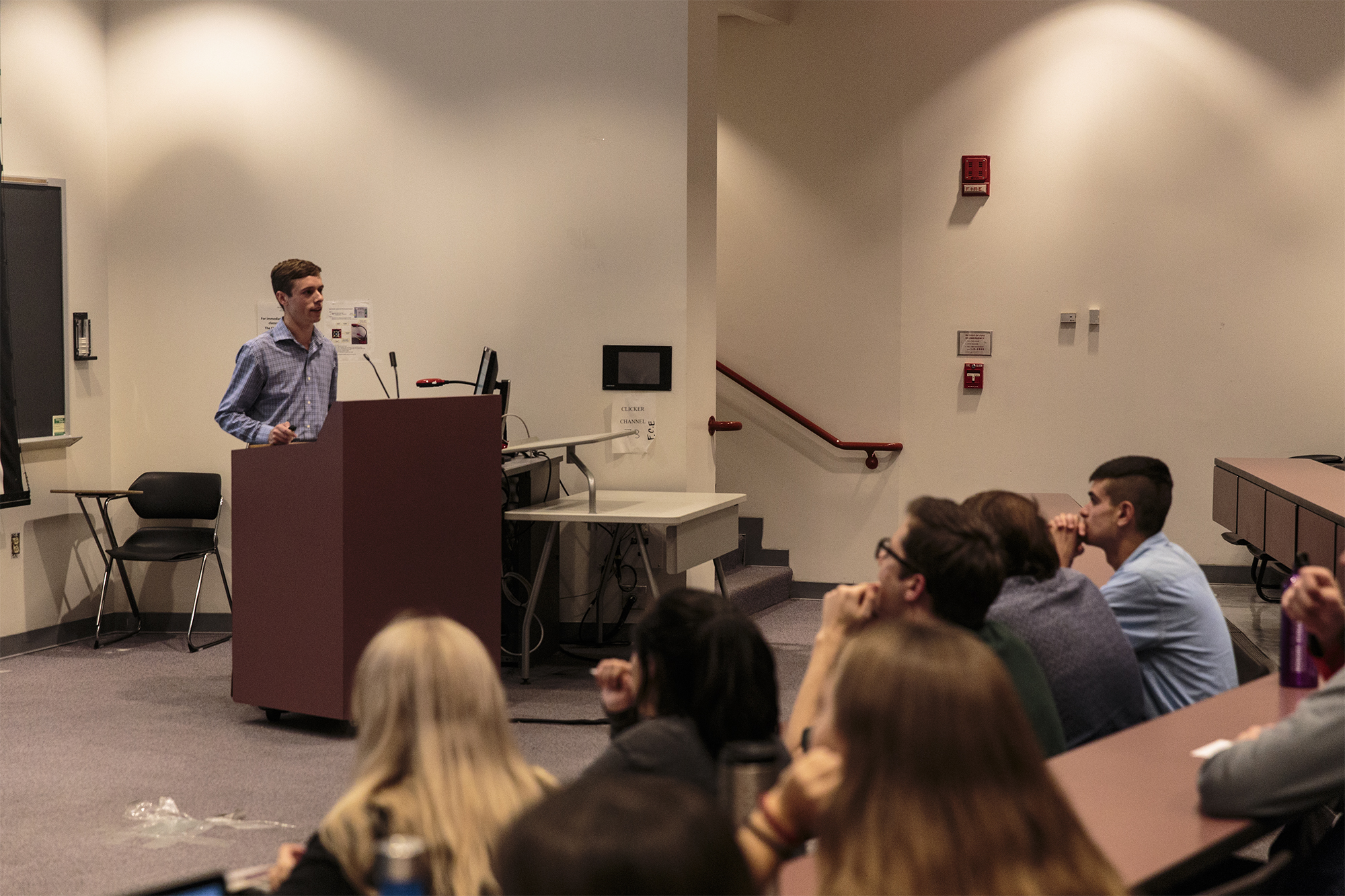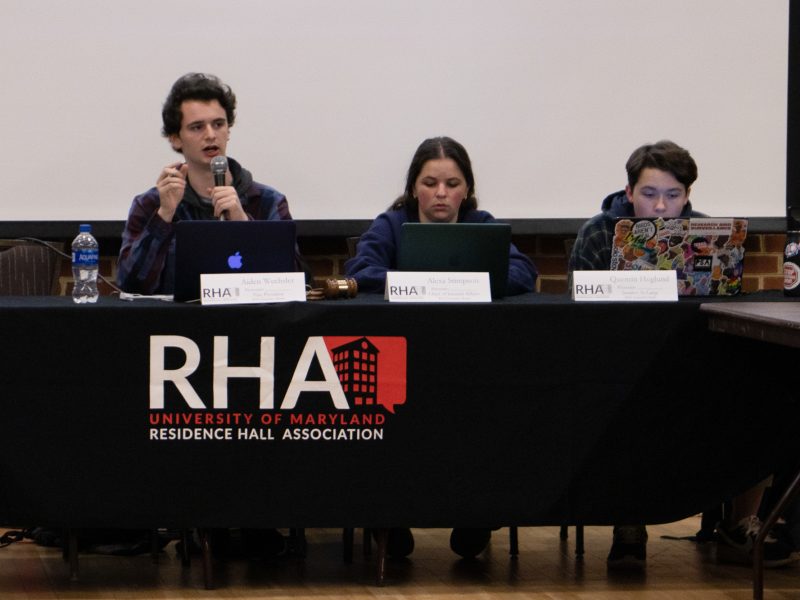After abysmal turnout in its past few elections, the University of Maryland’s SGA held a town hall Monday, where about 40 students expressed their concerns with the process.
The absence of meaning in party names — last year’s were called the One Party and the Unity Party — may contribute to confusion about what the candidates want to accomplish, said Cole Dougherty, a senior psychology major.
“It’s very difficult for anyone, regardless of affiliation, to parse out any substantive meaning from these names,” Dougherty said. “[The names] present abstract ideas that are unrelated to the issues at hand.”
Dougherty said he hoped to “add a different perspective” to the conversation. Most of the students in attendance were already involved with the Student Government Association. Christian Knapp, chair of the task force on election reform, said while he was not happy with the turnout, it’s what he expected.
[Read more: SGA discusses election reform and student voter registration at first fall meeting]
“Sometimes it takes a lot of low turnout events to get the engaged campus you want,” said Knapp, a senior economics and government and politics major.
This past spring, 8 percent of the undergraduate student body turned out to vote, which is 2 percentage points higher than the 2016 voter turnout. Both the 2016 and 2017 elections saw just one party in the race.
The 2017 race originally involved two parties, but the Unity Party dropped out after a Diamondback report revealed the party had violated SGA rules by failing to disclose support from Turning Point USA, a conservative nonprofit.
Knapp said the turnout was not always this low. In 2007, the SGA election saw a 20 percent voter turnout.
To see a higher election turnout and attract more candidates to run in elections, the SGA should be doing more outreach throughout the year, not solely for the 10 days that parties are permitted to campaign, said Mihir Khetarpal, SGA’s director of governmental affairs.
Other SGA members like Alex Kahn, deputy director of governmental affairs, agreed that increasing the publication of the SGA’s work on the campus would raise awareness about the SGA among the student body.
“Now that we have an SGA civic engagement director, they should be [promoting] SGA ideas year-round,” said Kahn, a sophomore, economics and government and politics major.
Knapp’s presentation at the forum informed students about how to get involved with the SGA by running in the spring election for executive, legislative and cabinet positions. Students may become involved with committees at the start of the fall semester through an application process.
[Read more: UMD SGA will start recruiting student groups to work on Terps Vote coalition]
Some students, like Sara Carter, policy adviser to SGA President AJ Pruitt offered a sense of optimism. While not many people outside of the SGA show up for debates, there is room to improve turnout by kicking off campaigns with a debate or inviting candidates to speak at student organization meetings, said Carter, a senior government and politics major.
After joining the SGA this semester, North Hill representative Chris Niccolini said the SGA meetings seem very closed to the student body, even though they are open to the public. The SGA should do more to publicize its meetings if the organization wants more student input, Niccolini said.
“If there were a weekly or once every two weeks newsletter, that would be helpful,” Niccolini said.
While the SGA can provide the space for students to express their concerns, it is up to students to engage with the organization and voice their concerns, Pruitt said.
“It is important for people to realize we really are trying to take a major step forward and fix the problems that have always been highlighted,” Pruitt said.
SGA members Nathaniel Zumbach, Ajay Mahesh and Ashley Vasquez serve on the election reform task force. Tisya Mavuram, a senior english and government and politics major, is the only non-SGA member in the group.
The task force has been reaching out to people who are affiliated with this university, including former SGA President James Bond, in an effort to find out what areas of election reform the task force should focus on, said Pruitt.
Bond is the assistant director of student conduct at this university.
CORRECTION: Due to a reporting error, a previous version of this story incorrectly stated the 2017 voter turnout was 2 percent higher than the 2016 voter turnout. It was an increase of 2 percentage points. This story has been updated.



